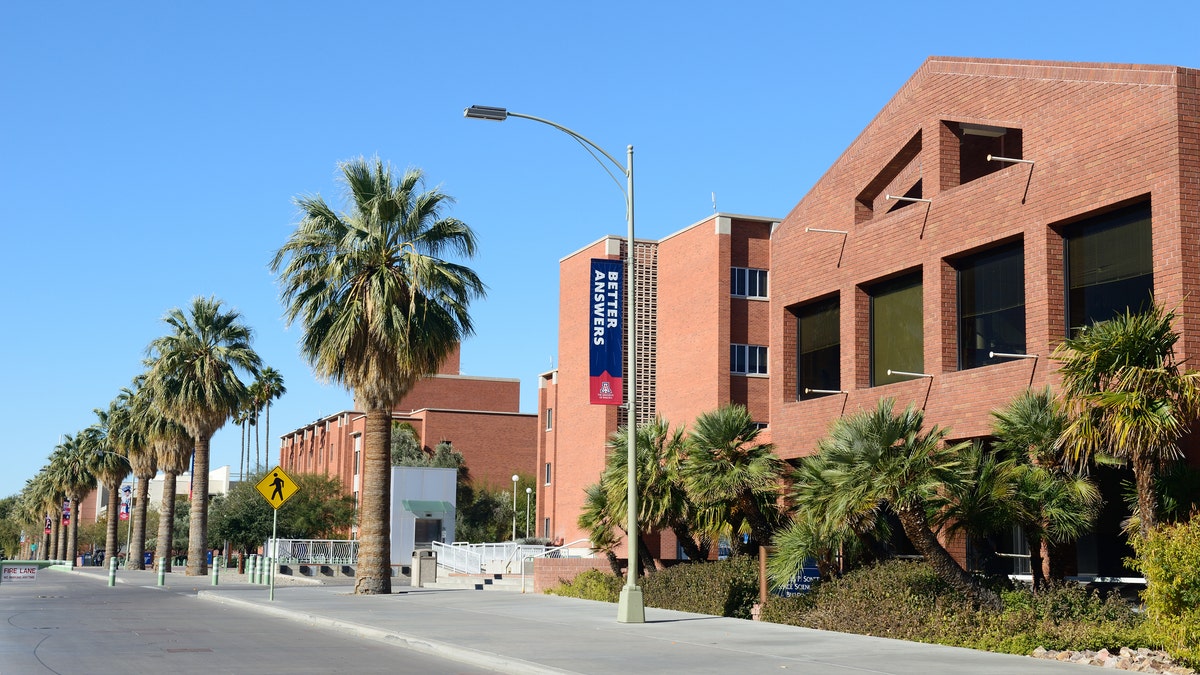Sewage surveillance to detect coronavirus is being used on certain college campuses to determine if the novel coronavirus is present in dormitories and college communities.
The University of North Carolina at Charlotte and the University of Arizona have both confirmed to Fox News that they are using this surveillance system to help contain the spread of COVID-19.
WASTEWATER SYSTEM DETECTS CORONAVIRUS AT UNIVERSITY OF ARIZONA DORM
Researchers at the University of Arizona Water and Energy Sustainable Technology Center are testing wastewater across the country to detect the presence of SARS-CoV-2 in communities and help public officials contain potential outbreaks, according to a news release from the University of Arizona.

Tucson, USA - January 3, 2016. Campus view of University of Arizona in downtown Tucson, Arizona, USA.
courtesy: iStock
Dr. Ian Pepper, a microbiologist at the University of Arizona College of Agriculture and Life Sciences and director of UA Water and Energy Sustainable Technology (WEST) Center, is leading the effort on the college’s campus.
“Wastewater-based epidemiology (WBE) has proven to be an effective way to detect COVID-19 in student dormitories on campus at the University of Arizona, and since it is a leading indicator, it detects the presence of the virus up to seven days before infected individuals show symptoms," Pepper said.
The researchers at the WEST Center collect sewage samples before and after wastewater treatment. They then use nucleic acid targets and molecular methods recommended by the Centers for Disease Control and Prevention (CDC) to detect genetic markers of SARS-CoV-2, the virus that causes COVID-19, in the samples, according to the news release.
"Testing the wastewater gives you an idea of the number of cases within a community and if the numbers are increasing or decreasing," Pepper said in a university press release. "The approach can also be used to help determine if an intervention is working to reduce the transmission of the virus."
CORONAVIRUS MAY TRAVEL THROUGH TOILET AND PIPES: STUDY
"We will be able to determine if the virus persists in the community even if there are no reported new cases," Charles Gerba, a microbiologist and professor of environmental science in the College of Agriculture and Life Sciences, said in the press release. "To me, it's a key to tracing the spread of a virus."
The wastewater surveillance program has been used worldwide, and has been helpful in identifying poliovirus, among others, found in community wastewater in some countries, according to the release.
"We have tested for hepatitis A, enteroviruses and noroviruses. We have approximately 15 different viruses that we regularly test for in sewage and recycled waters for reuse applications," environmental virology expert Walter Betancourt, a microbiologist and assistant research professor in the Department of Environmental Science, said in the release.
Recently, the University of Arizona was able to detect two asymptomatic individuals in a dorm through the wastewater system analysis. Over 300 individuals associated with the dorm were tested and two positive cases were discovered and isolated.
“Nobody would have known that otherwise. With this early detection, we jumped on it right away, tested those youngsters, and got them the appropriate isolation where they needed to be.” Dr. Richard Carmona, who leads the university’s reentry task force, said during a recent media conference addressing the discovery. “Think about if we had missed it, and if we waited for them to become symptomatic and they stayed in the dorm for days or a week during the incubation period, how many people would have been infected."
“The technology is helpful in preventing outbreaks before they start," Pepper added to Fox News. "An important additional benefit is that WBE will detect virus shed by both symptomatic and asymptomatic infected individuals.”

